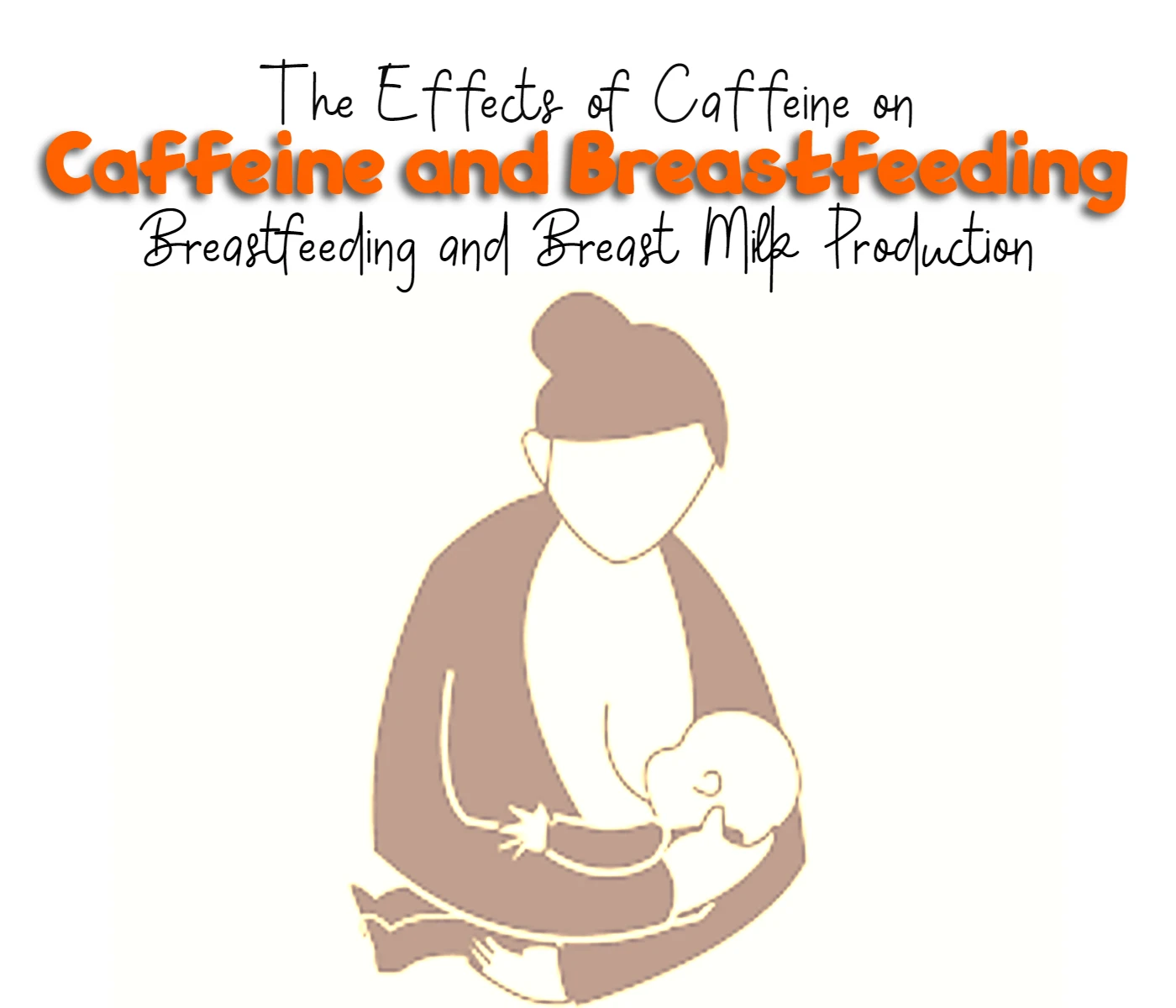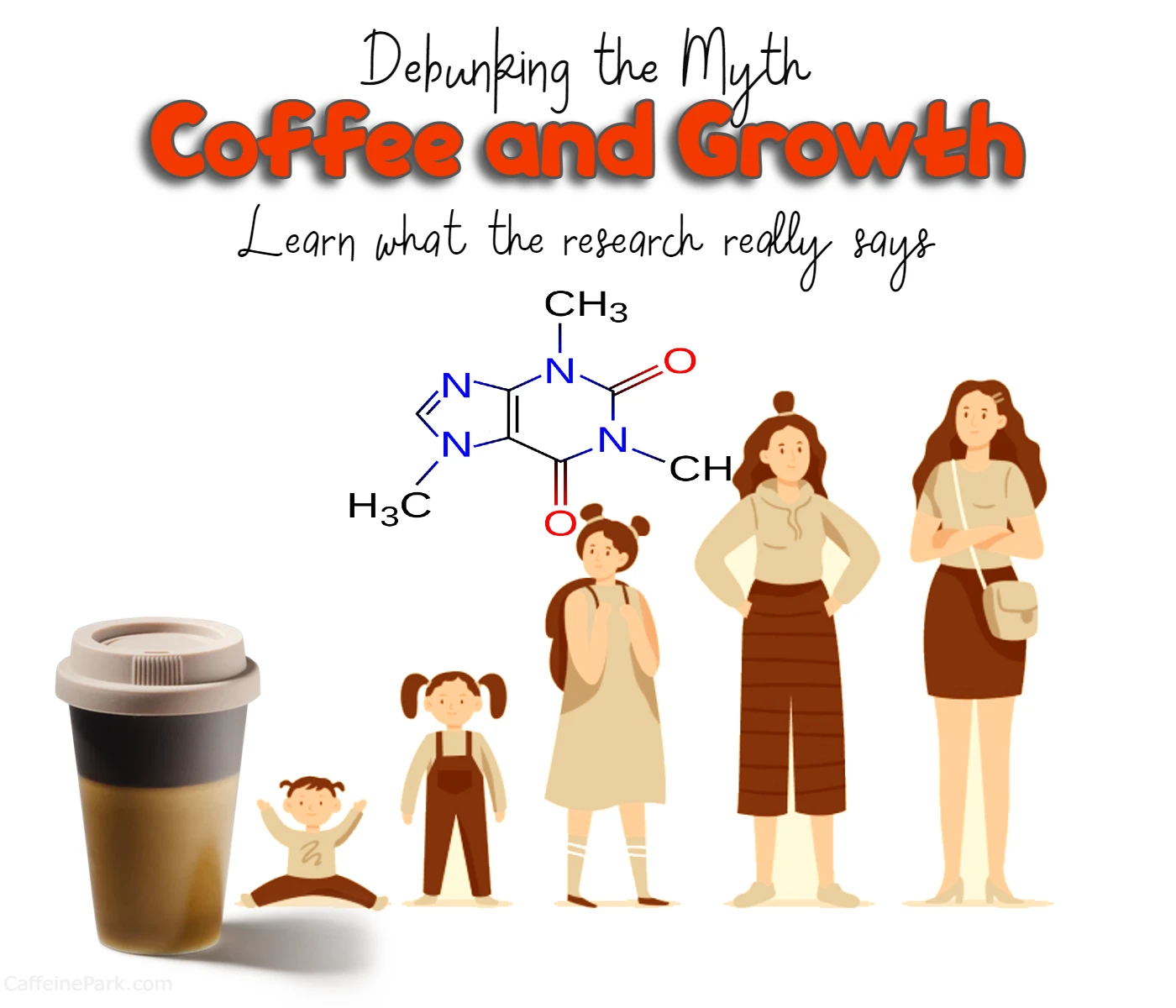Caffeine and breastfeeding

Breastfeeding is a crucial aspect of the newborn’s growth and development. However, breastfeeding mothers must take extra care of their diet as the food they consume can affect their breast milk production and quality. Caffeine, being a widely consumed stimulant, can also potentially pass into breast milk, leading to several concerns. In this article, we will discuss the effects of caffeine on breastfeeding and how much caffeine is safe to consume while breastfeeding.
What is Caffeine?
Caffeine is a natural stimulant found in coffee, tea, chocolate, and many other beverages and foods. It works by stimulating the central nervous system, which results in increased alertness, energy, and mood. While caffeine can offer many benefits, such as increased mental focus, it is also known to cause adverse effects such as headaches, restlessness, and insomnia when consumed in excess.
Can Caffeine Affect Breastfeeding?
Yes, caffeine can affect breastfeeding. When a breastfeeding mother consumes caffeine, a small amount of it is transferred to the breast milk. The caffeine in breast milk can affect the baby’s sleep, behavior, and overall health. However, the effect of caffeine on breastfeeding varies from one mother to another, and it depends on the amount of caffeine consumed and the baby’s sensitivity to caffeine.
Research suggests that moderate caffeine consumption is generally safe for most breastfeeding mothers and babies. In fact, the American Academy of Pediatrics (AAP) considers moderate caffeine intake (up to 300 mg per day) to be compatible with breastfeeding. However, excessive caffeine consumption (more than 600 mg per day) may cause problems for some babies.
It is important to note that caffeine can accumulate in a baby’s system, as their body is not fully developed to metabolize caffeine as efficiently as an adult. This means that even small amounts of caffeine can have a significant impact on a baby’s behavior and sleep patterns.
If you are a breastfeeding mother, it is recommended that you consume caffeine in moderation and keep track of the amount of caffeine you consume each day. You should also pay attention to your baby’s behavior and sleep patterns to determine if caffeine is affecting them. If you notice any adverse effects, you should consider reducing your caffeine intake or eliminating it altogether.
In the next sections, we will discuss the effects of caffeine on breast milk and breastfeeding, the recommended caffeine intake for breastfeeding mothers, and tips for managing caffeine consumption while breastfeeding.
The effects of caffeine on breast milk and breastfeeding
Caffeine is a stimulant that is widely consumed by people all over the world. It is found in coffee, tea, soft drinks, energy drinks, and chocolate, among other things. Breastfeeding mothers may wonder how caffeine intake can affect their breast milk and their baby. In this article, we’ll explore the effects of caffeine on breast milk and breastfeeding.
Does Caffeine Pass into Breast Milk?
Yes, caffeine does pass into breast milk. Studies have shown that the amount of caffeine in breast milk is directly related to the amount of caffeine consumed by the mother. On average, it takes about 2-3 hours for caffeine to reach peak levels in breast milk after consumption. The half-life of caffeine in breast milk is about 97.5 hours, which means that it takes around 4-5 days for the caffeine to be completely eliminated from breast milk.
How Much Caffeine is Safe While Breastfeeding?
The American Academy of Pediatrics recommends that breastfeeding mothers consume no more than 300 mg of caffeine per day, which is about the amount in 2-3 cups of coffee. However, some babies may be more sensitive to caffeine than others and may experience negative effects even with lower amounts of caffeine in breast milk.
It’s important to note that caffeine intake is cumulative, so even small amounts of caffeine from different sources throughout the day can add up. Additionally, the timing of caffeine intake can also affect its impact on breast milk and breastfeeding.
How Does Caffeine Affect Breast Milk and Breastfeeding?
While the effects of caffeine on breast milk and breastfeeding are not fully understood, there is evidence that high caffeine intake can cause issues for some babies. Some of the potential effects of caffeine on breast milk and breastfeeding include:
1. Irritability and sleep disturbances
Caffeine can make babies irritable and cause sleep disturbances. Babies who are exposed to high levels of caffeine through breast milk may have trouble falling asleep, staying asleep, or sleeping for a sufficient amount of time.
2. Dehydration
Caffeine is a diuretic, which means it can cause increased urination and dehydration. This can be especially concerning for newborns and young infants, who are more vulnerable to dehydration.
3. Digestive problems
High levels of caffeine in breast milk can cause digestive problems in some babies. Symptoms may include colic, constipation, and diarrhea.
4. Reduced milk production
Caffeine can interfere with milk production, which can be a concern for breastfeeding mothers who are struggling with a low milk supply.
Tips for Breastfeeding Mothers who Consume Caffeine
If you’re a breastfeeding mother who consumes caffeine, there are some tips that can help minimize the potential negative effects on your baby:
- Limit caffeine intake to no more than 300 mg per day.
- Be mindful of the timing of caffeine consumption. Consuming caffeine earlier in the day and avoiding it in the evening can help reduce the risk of sleep disturbances.
- Consider reducing caffeine intake if your baby is experiencing negative effects, such as irritability or sleep disturbances.
- Drink plenty of water to stay hydrated, especially if you consume caffeinated beverages.
What are the Alternatives to Caffeine While Breastfeeding?
Breastfeeding mothers who wish to reduce their caffeine intake can opt for decaffeinated coffee and tea. Additionally, they can also choose to drink herbal teas, such as chamomile and peppermint, which are caffeine-free and can provide a soothing effect. Water, fruit juices, and milk are also excellent alternatives to caffeine-based beverages.
Conclusion:
Caffeine is a widely consumed stimulant that can pass into breast milk and affect breastfeeding. While moderate caffeine intake is generally considered safe for breastfeeding mothers, high levels of caffeine can cause issues for some babies, such as irritability, sleep disturbances, dehydration, digestive problems, and reduced milk production. If you’re a breastfeeding mother who consumes caffeine, it’s important to be mindful of your intake and its potential effects on your baby.
FAQs
The general consensus is that consuming up to 300 milligrams of caffeine per day is safe while breastfeeding. However, some babies may be more sensitive to caffeine than others, so it’s a good idea to monitor your baby’s behavior after consuming caffeine to see if it affects them.
The amount of time caffeine stays in breast milk varies depending on factors such as the amount of caffeine consumed, the mother’s metabolism, and the age of the baby. Generally, caffeine can stay in breast milk for up to 6 hours.
There is no direct evidence linking caffeine to colic in breastfed babies. However, some babies may be more sensitive to caffeine than others, and it’s possible that consuming caffeine may contribute to symptoms of colic.
It’s not necessary to avoid caffeine altogether while breastfeeding, but it’s a good idea to limit your intake and monitor your baby’s behavior after consuming caffeine. If you find that caffeine does affect your baby, you may need to avoid it altogether.
If you want to reduce your caffeine intake while breastfeeding, you can start by cutting back gradually. You can also try switching to decaf coffee or tea, or choosing other caffeine-free beverages. It’s also a good idea to be aware of the caffeine content of other foods and medications you consume.
Read More:





